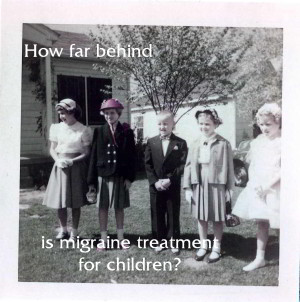Supplements as Preventatives for Children – what works?
We know that many supplements have been used to prevent migraine in adults, but what about children? A recent review published in the journal Cephalalgia asked the question – and you may not like the answer.
The authors of the study reviewed research that’s been done into complimentary and alternative preventative treatments for children – specifically, various supplements used for migraine prevention. Based on the research, they made some recommendations, but their conclusion may be the biggest issue.
So what did they recommend? For one, butterbur – but only Petadolex. Also recommended was magnesium, but only certain formulations (read more here). Finally, coenzyme Q10.
Supplements that were not recommended included riboflavin, ginkgolide (from Ginkgo biloba) (at least not in isolation), and polyunsaturated fatty acids.
Now why would those three not be recommended? Aside from the polyunsaturated fatty acids (which researchers felt did not work), the problem was not that they don’t work, but simply that there’s no good evidence that they do.
In this case, it doesn’t mean there’s no studies. But the studies were small or poorly designed.
 |
Now we understand that, with so many options, it’s not wise to try a bunch of treatments that have no evidence behind them before we try the many treatments that are much more likely to work. Far too much time and money is wasted on treatments that may be well marketed but are actually of little benefit.
But in the world of paediatric migraine treatment, the problem is that there are simply not enough good studies.
Now we know that migraine research in general is woefully under-funded. But if you’re a child with migraine, you’re at an even higher risk, because there are even fewer studies.
Although the recommendations of the researchers for supplements are helpful, they themselves do not emphasize the benefits of COQ10, magnesium, and butterbur. Instead, in their abstract (Nutraceuticals in the prophylaxis of pediatric migraine: Evidence-based review and recommendations.), they conclude simply:
Overall, the quality of the evidence for the use of nutraceuticals in pediatric migraine prophylaxis is poor. Further research needs to be done in order to study the efficacy of nutraceuticals for the prophylaxis of pediatric migraine.
This review should be helpful to parents and guardians who are looking for effective treatments for children. But we could help them even more by promoting further research into alternative and complimentary paediatric treatments.

canty_sean
14 May 2014 @ 11:41 am
@migraine_blog great blog huge time saver #migrainehelp
MigraineProject
14 May 2014 @ 7:36 pm
Via @migraine_blog Supplements as Preventatives for Children – what works? http://t.co/9W8Hf5cDYN